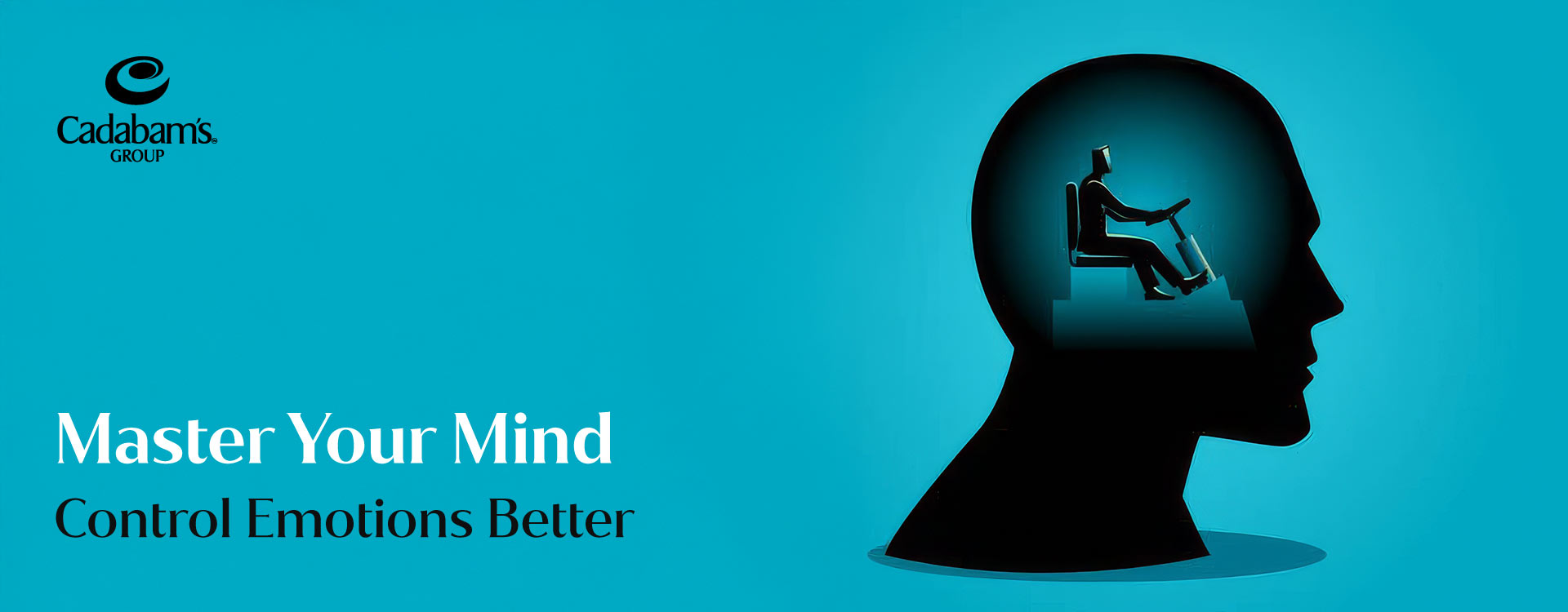Emotions naturally occur in situations in our daily life. Whenever you feel happy, sad, bored, or just simply frustrated, your feelings are coursing through your veins. They can either add excitement and vibrancy to our lives or ruin our day.
Now, the critical part is to control one’s emotions, especially negative ones like frustration, anger, or anxiety. Conflict in relationships, problems at work or school, health issues, etc. can be brutal. However, emotional control reflects one’s ability to identify and regulate emotions and a certain level of control over spontaneous reactions. This could also lead to problems in both physical and mental health.
While coping with emotions encompasses both positive and negative emotions, the main focus is to manage particularly disruptive emotions that may have negative consequences.
Effects of lack of emotional control:
When you experience a terrible situation, you are highly likely to keep overthinking and maybe just let the seed of doubt fester in. This doubt could lead to disastrous consequences :
Impact on health:
Lack of emotional control causes psychological stress on the mind and body. These blocked or thwarted emotions cause physical problems like headaches, insomnia, heart diseases, unbearable stomach aches, etc. These negative emotions can affect your daily life routines and even your relationship with friends and relatives.
Suppressing your emotions:
You feel scared to express emotions which leads to anger and anxiety. Learn to exercise control over emotions and ensure that you aren’t suppressing or hiding them. It is always advisable to find a balance between overwhelming emotions and no emotions at all
Analyze your feelings:
Minor arguments blow out of proportion and ruin relationships when emotions are not in control. Keep a check on the reason behind your irritation or even negative feelings. Before getting extremely upset, ask yourself the reason for the situation - cause and try to identify better ways to cope with it. Once you start analyzing your thoughts and feelings you will not make the mistake of making the first intense adverse reaction.
Self Harm:
Lack of emotional control could lead to self-harm or habits like restrictive eating or binge eating. One could also experience suicidal thoughts or go on a spree of taking drugs or liquor. Such practices could potentially have disastrous consequences.
How to keep your emotions under control?
Unconsciously most individuals are ruled by emotions, but once you realize the power of emotional control, life tends to get easier. These techniques answer the question of what is emotional management, and will also help to control your feelings.
Learn to keep a mood journal
Journaling your emotions is an effective way to face and resolve your negative emotions. It will help you reveal your fears, thoughts, and feelings while encouraging you to prioritize your problems and triggers and even find ways to control them.
Penning down your feelings can help you think deeply about your situation, reaction, and thoughts. This can teach you to manage your emotions more appropriately. Daily journaling can be a great way to handle similar scenarios in the future.
Breathing exercises:
Whenever you are experiencing your emotions getting out of control, be it positive or negative, believe in the power of your breath. This will help you take a step back from the adverse reaction and also help to ground your emotions. Taking control of your breath one step ahead, you could also choose to add a mantra to it, like - I’m a good soul, I’m a calm soul, and experience the difference in your attitude.
Meditation:
Meditation is another way to cope with extreme feelings and experiences. With meditation, you teach yourself to accept your feelings and analyze them without judgment. You can either let go of them or get the courage to deal with them through this process. It can help you relax and accept your emotions and the current situation in your life.
Dealing with stress:
When you are in a bad mood, you tend to isolate yourself, overthink or even engage in minor issues, which can be even more stressful. To gain emotional control, you need to learn to manage stress by being mindful of getting involved in other activities. A few ways to do so are :
- Go for a walk
- Talk to your friends or plan to meet
- Take out time for your hobbies
- Spend time in an open area and breathe in the fresh air on a terrace or a park.
Reevaluate your thoughts:
Negative feelings or thoughts attract more negativity in one’s life. You need to train your mind to see the positive in every negative situation. Anger and anxiety tend to increase the problem rather than solve it. By reframing your thoughts and reasoning, there is a higher chance that one will be able to find a constructive solution.
Counseling:
Therapy and counseling can be highly effective in dealing with emotions. Cognitive-behavioral treatment which includes a combination of mindfulness, acceptance, and emotional regulation, can be fruitful in reframing negative thoughts and feelings. A healthy diet and exercise can be added pluses to one’s lifestyle. This can help to improve physical health and mood.
When should you see a doctor?
Change in mood, bad mood, or bad temper is a common occurrence as long as it occasionally happens for short periods. However, when these symptoms persist, it may signify a serious problem. It could result in unpredictable behavior causing trauma, family conflicts, and other issues.
The symptoms may indicate mental health conditions like Borderline Personality Disorder(BPD) and Bipolar Disorder. Schedule an appointment with a licensed mental health practitioner to discuss your feelings and thoughts. They can help you determine why you feel a particular way and how to resolve it.
Summary:
Life is a mix of ups and downs. It has both happy, sad, and frustrating moments. On such days a hold over your emotions can help solve your problems rather than increase them. It is essential that before emotions control you, you should take enough and more effort to control your emotions and positively channel them.
FAQs
What is emotional intelligence management?
Ans. Emotional intelligence (EQ) is the capacity to recognize, use, and control one's own emotions in a constructive way in order to reduce stress, communicate effectively, sympathize with others, overcome obstacles, and diffuse conflict.
.webp)







